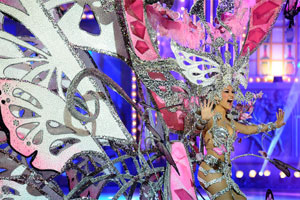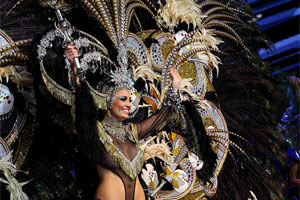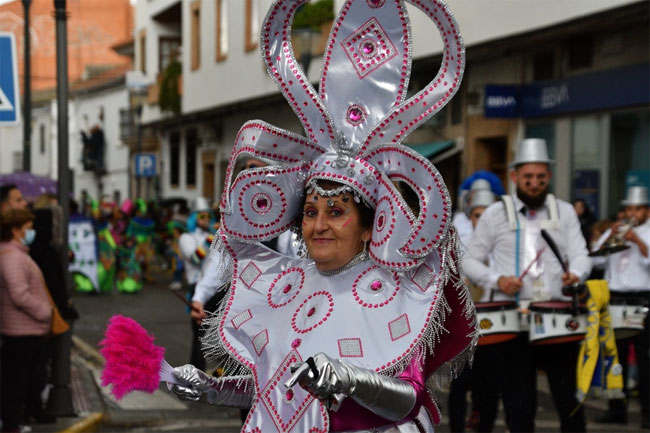The Mojiganga of Graus
The festivities are in honour of the Santo Cristo and San Vicente Ferrer, with the most deeply-rooted traditions of the place, such as the dances, the pllega, the Albadas and the Mojiganga.
Each of the days of the festivities has its own programme.
On the first day, the 12th, the festivities begin at 12 noon. With the parade of floats. In the afternoon, the bagpipers come to play on the bridge below.
In the evening the first Albadas begin to be sung, which are songs from the Muslim period about love stories or epic events from past times.
On the morning of the 13th and 14th, the dances are performed to the sound of bagpipes, which are divided into two: sword and ribbon dances.
The dance of swords has three parts, called La Cardelina, Taninaná and La Culebreta. It is danced by four quadernas of five dancers each. The dancer in the middle wears different attire with elements of female costumes and its origin seems to be in incorporating the figure of the woman into a dance that was associated with virility and fertility, being all men who represented it.
The dance of the ribbons has had a more modern adaptation, changing the bagpipes for an orchestra and also introducing mixed couples. It used to be danced only by men, and also has a representation of fertility rites. The dancers dance holding the ribbons around the 'mayo' or central pole decorated with flowers. The dances are also accompanied by the figures of giants and big-heads who appear in a satirical tone. There are other curious elements such as the 'furtaperas' which is a doll that hangs from the façade of the town hall and goes round and round, recalling the fact that a child was condemned by the Mojiganga Kings for stealing seven pears from a villager.
La Mojiganga is a satirical-burlesque show in which the events of the last year in the town of Graus are reviewed and staged in a humorous way. It should be pointed out that its burlesque nature has meant that this performance has been banned from being performed at certain times. Such is the case of the French invasion, or during the government of Primo de Rivera until 1977.




